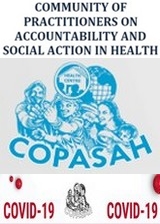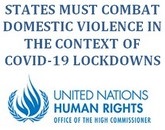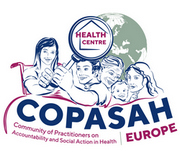
The association ESE along with 300 civil organizations from the whole world supported the joint initative „Human Rights for All in the Framework Post-2015“.
Human rights had significant place in the debate about the period after the Millennium Development Goals in 2015. In essence, the Post-2015 human rights based framework changes the model of solidarity into a model of justice, based on the inherent dignity of people as holders of human rights, national governments as primary holders of duty, as well as all development actors who share the joint responsibilities, but still differ.
Accordingly, the post-2015 framework should be designed as tool which strengthens the people and enables them – individually and collectively – to monitor their governments, other governments, businesses, international organizations and other development actors, and to ask for accountability in their action that affects the lives of people inside and across the borders.

Marija Gelevska on behalf of the Association ESE on 29.11.2013, as part of the UPR process at the UN Council of human rights in Geneva, presented the key areas of concern and recommendations to improve the health status of vulnerable groups in R.Macedonia.
The report on health within the second reporting cycle of R.Macedonia as part of the Universal periodic Review was prepared by the Association ESE with support from the Foundations Open Society New York and Macedonia through cooperation among 10 civil organizations: KHAM, Coalition Sexual and health rights of marginalized groups, HERA, HOPS, LGBT Centre –Helsinki committee for human rights, National Roma Centre, Poraka, Roma Resource Centre, Roma SOS and Open Gate – La Strada.
The submission on health includes the key problems and recommendations to improve the health of the following vulnerable categories of population: Roma, people living with HIV/AIDS, LGBT persons, women, people with intellectual disability and victims of human trafficking.
The purpose of the participation at the pre-session was to present the situation in R.Macedonia regarding the respect for the whole corpus of human rights and the activities taken to improve the situation from 2009 (First reporting cycle of RM) to the second reporting cycle of RM, i.e. February 2014.
Enclosed:
1. Statement UPR – Association ESE - Republic of Macedonia
2. Joint submission on health to the UPR - ESE and other CSO’s
3. Key issues of Concerns and Recommendations

A woman visits a gynecologist for a check-up but the office demands she pay a fee for a service that is free.
A young child and his parents are never informed about vaccination for measles, mumps, and rubella.
A man in need of dialysis is thrown out of the hospital because he asks for transportation reimbursement, which is required by law.
These are just a few of the many health rights violations Roma people face in Macedonia. But the work of Roma paralegals is having a profound impact on Roma health in their communities.
To protect health rights and influence systemic change, four Macedonian organizations have joined forces. Three of them are local Roma organizations—Centre for Democratic Development and Initiatives, Humanitarian and Charitable Organization of Roma (KHAM Delcevo), and Roma Resource Center. The fourth, Association for Emancipation, Solidarity and Equality of Women (ESE), is a national human rights organization with experience in advocacy and research.
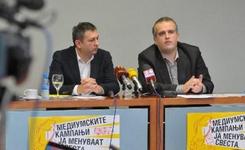
Today, the association ESE, in cooperation with the civic organization HERA organized a press conference and public debate in order to present the key findings of the conducted monitoring on spending budget funds for the media campaign “Choose life, you have the right to choose” and the findings from the survey conducted with the population and gynecologists regarding their perception and views about abortion.
The government of RM, instead of spending 10% of the budget for preventive health care for one media campaign that discriminates against women and violates their reproductive rights and also stigmatizes women who have already made or plan to make an abortion, SHOULD use the funds for promotion of women’s health and provision of quality and adequate preventive services through the program for active health care for mothers and children and program for early detection of malign diseases.
Read more about the results...
Watch the video from the press conference...
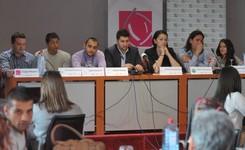
The national conference organized by the Association ESE was held on 08.11.2013 at the hotel Arka and lasted for 5 hours. Total of 60 representatives of civil organizations and public institutions participated in the conference.
At the conference, the organizations and public institutions stated a range of obstacles that Roma people face regarding the access to health services, while ESE presented several approaches which can be applied in the everyday work and also contribute to the continuous registration and overcoming of violations of the rights of Roma people to health care and health.
The following was emphasized at the conference:
- Hidden discrimination in the treatment of Roma patients, inability for payment of the necessary health services, distance of medical institutions as well as inadequate knowledge about health rights are some of the barriers that Roma population encounter on everyday basis in their access to health services in Macedonia.
- Lack of relevant and official data about the health status of Roma people that prevents the resolution of their health problems.
- Marginalization of Roma people in Macedonia is alarming in several aspects of public and private life, and unfavorable socioeconomic and living conditions which are accompanied with the barriers for access to health services, contribute to the unfavorable health status and shorter life span of Roma people.




